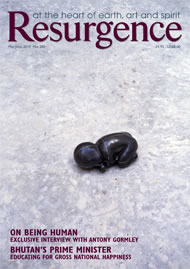In today’s society with its emphasis on aggressive competitiveness and self-reliance, kindness, the authors argue, has become “a virtue of losers”. In a culture where we are all striving to tick the boxes of success, kindness is seemingly incompatible with our self-seeking lifestyles and no longer something to aspire to. Simultaneously, we create media icons of saintly kindness, with our tabloids delighting in recounting heroic acts of incidental kindness, presenting them as sensational, almost unbelievable in such a selfish age. How, the authors ask, did we reach this point, where “mutual belonging” has become one of the great taboos?
In this succinct volume, the authors aim to answer the fundamental question, “How do people come to forget about kindness and the deep pleasures it gives to them?” The pleasures of kindness have been written about and contended from the dawn of Western philosophical thought. Here, psychoanalyst Adam Phillips and historian Barbara Taylor espouse the words of the philosopher Alan Ryan, who maintains that we “mutually belong to one another”, and that the good life is one that “reflects the truth”. So, how did we get from Marcus Aurelius’ assertion that kindness is a person’s greatest delight to treating it as highly suspect and “a saboteur of the successful life”?
For Phillips and Taylor, it is a deeply troubling state of affairs. They counter Nietzsche’s theory in The Genealogy of Morals that “the inexorable progress of the morality of compassion [is] the most sinister development of our European culture.” And, in contrast, they offer: “It is our view that the morality of compassion has not made progress – has indeed shied away from its shrewdest insights – and that this is the truly sinister symptom of modern life.”
The sections ‘A Short History of Kindness’, ‘How Kind?’ and ‘The Kindness Instinct’ range with great dexterity over centuries of debate on the subject, weaving philosophy and psychoanalysis together within changing socio-economic and political contexts. From the joyous pagan element of kindness found in both Stoics and Epicureans, we move through to the self-sacrificial definition of caritas by post-Augustinian Christianity. This concept of self-sacrifice was seized upon by Hobbes in his Leviathan as a fallacy and used to bolster his own view of humanity as an inherently selfish beast.
We emerge, thankfully, in the 18th-century Enlightenment with an alternative version of kindness, which treated the self and others as interdependent: “Here the self was seen not as isolated but as inherently social, formed through its kindly relations with others…” It is this version of kindness, later enriched and made complex by psychoanalytic insights, in particular Freudian, that lies at the heart of the book. It is a version originating in the concept of sympathy, and its development is explored here through the anti-Hobbesian theories of Adam Smith and David Hume, and a more in-depth study of Jean-Jacques Rousseau.
If sympathetic attachments, as argued here, have been recognised for so long as fundamental to a healthy human society, how did we end up in the selfish and isolated state we are in today? This forms the subject of the last section, ‘Modern Kindness’, where we find, not surprisingly, that our selfish individualism owes much to the legacy we inherited from the Thatcher era and the tokenism of the ‘caring, sharing nineties’. We now have a kindness concept delivered to us through management: call-centre employees given ‘warmth and empathy’ training, nurses monitored by a ‘compassion index’, shop assistants wearing ‘Happy to Help’ badges, to name but a few sad examples.
We might despair at this point, but the authors give us hope by urging our re-connection with each other, the potential to rediscover and act upon “fellow feeling” and “mutual belonging”. Here a return to a sense of community is key. Not the virtual community of Facebook, but a genuine community that functions on daily expressions of fellow feeling and acts of kindness. Without being over-sentimental, living in a small rural community in west Wales I can bear witness to this kind of emerging community, and I believe that if it can be nurtured and expanded, there is hope.







